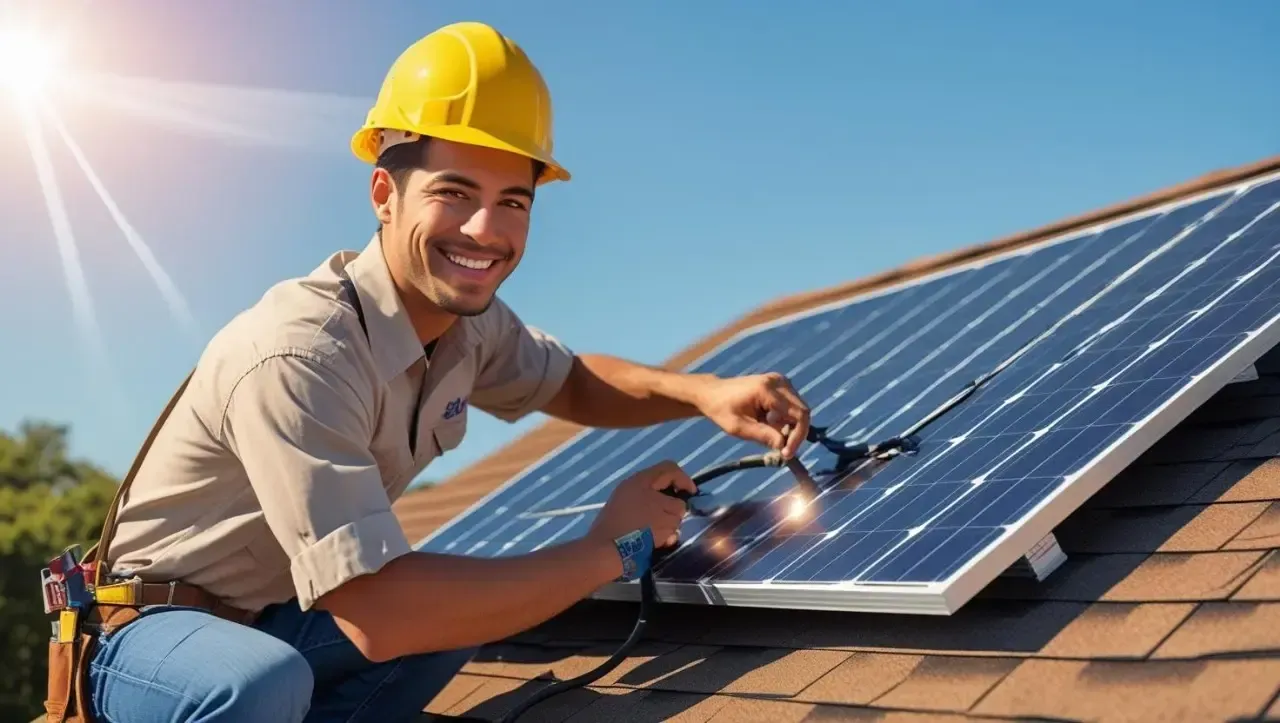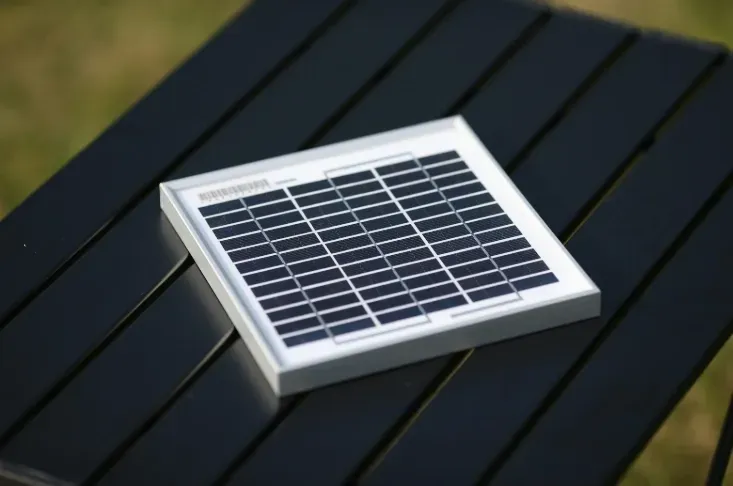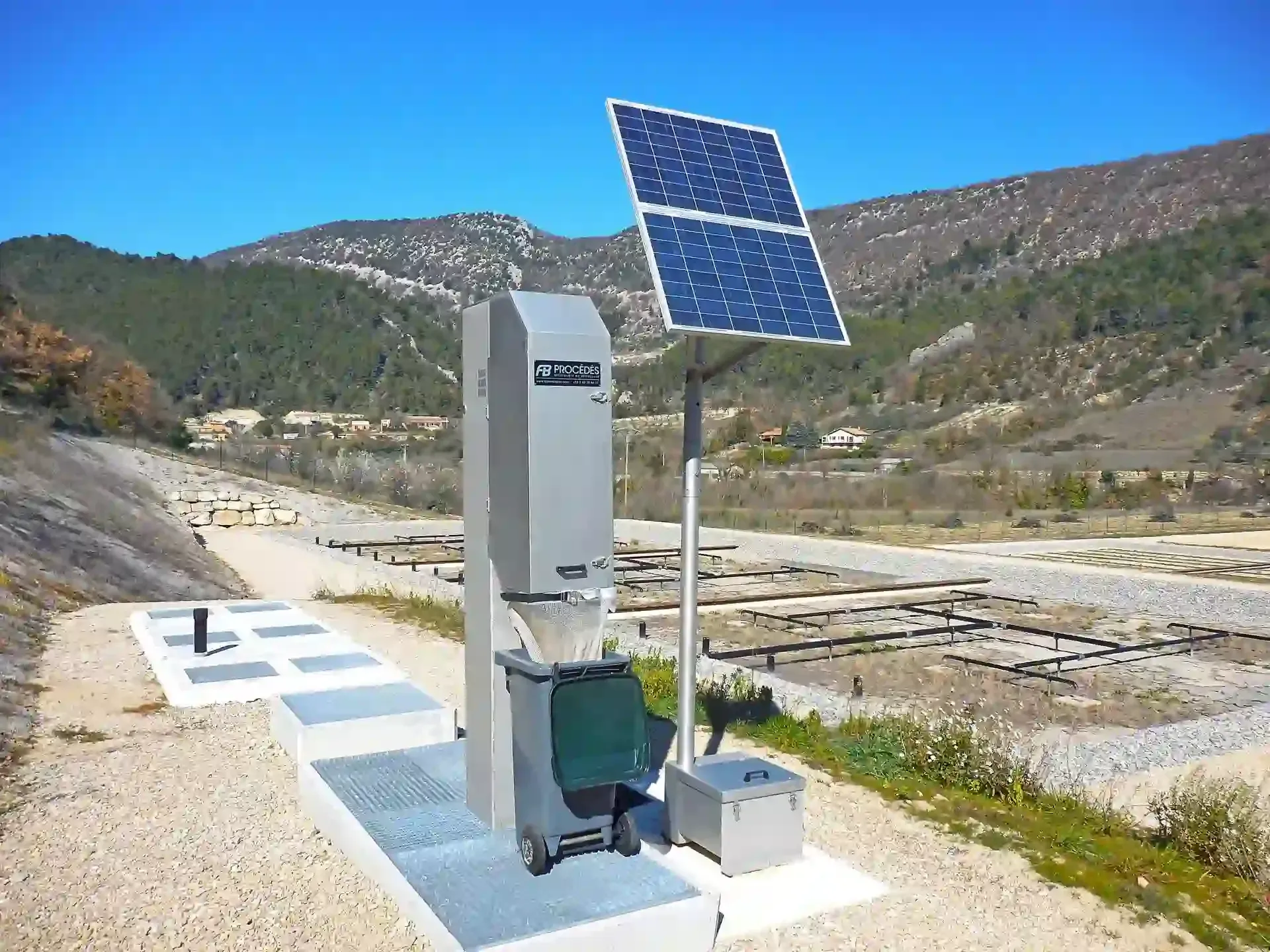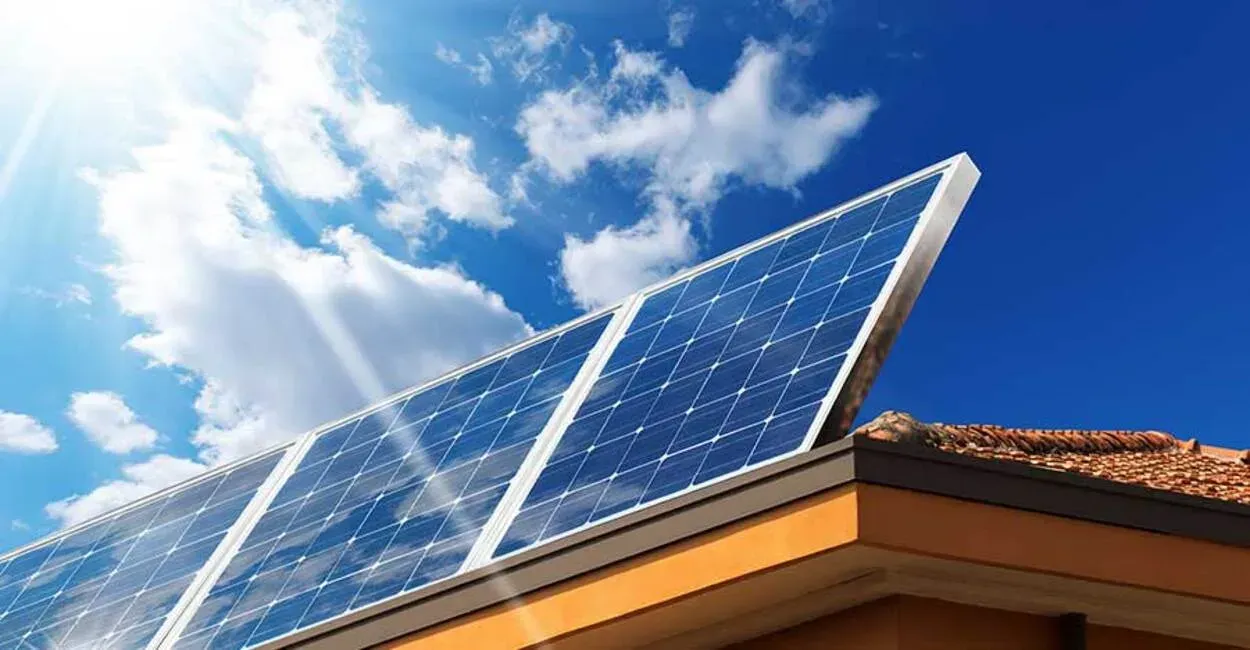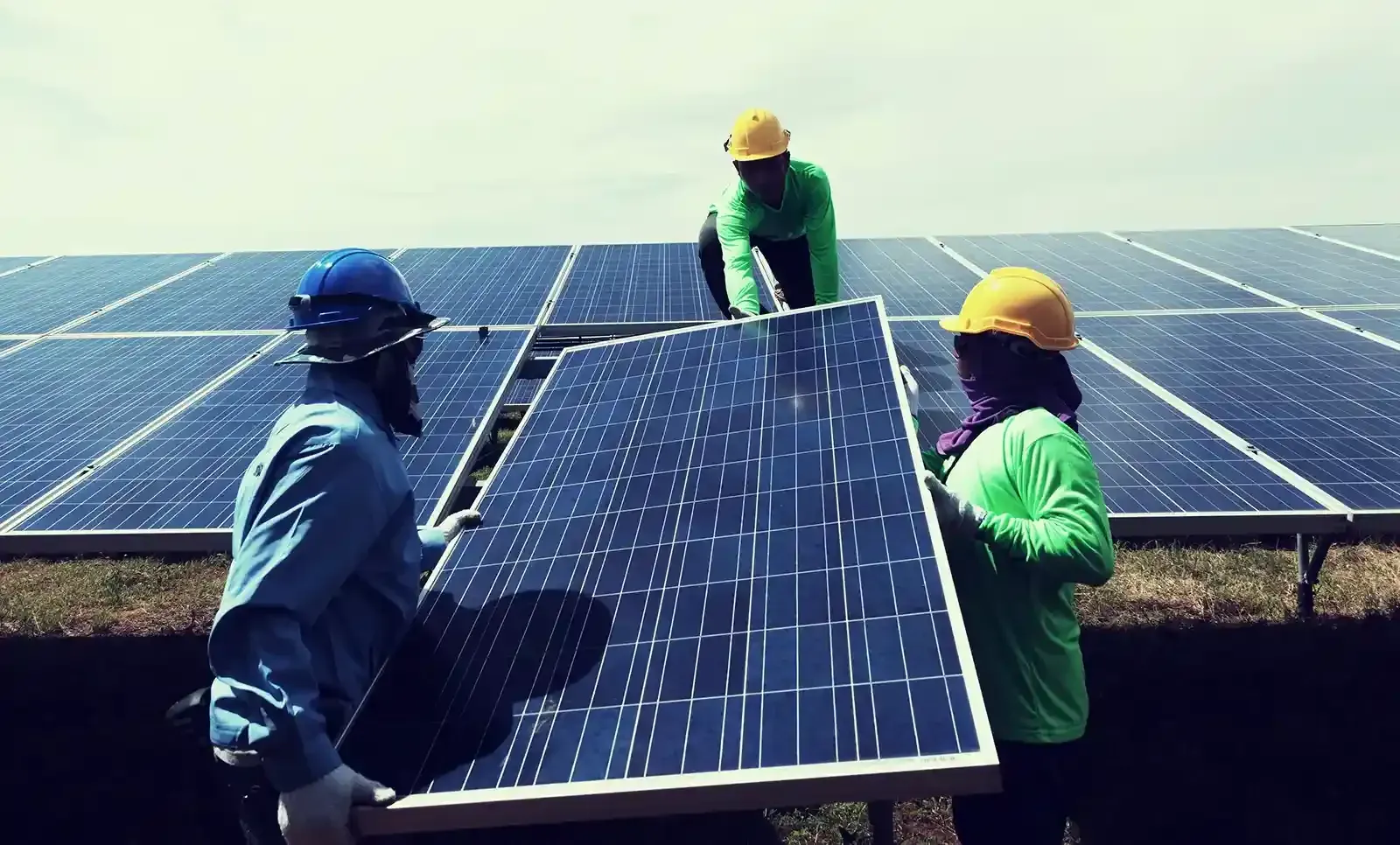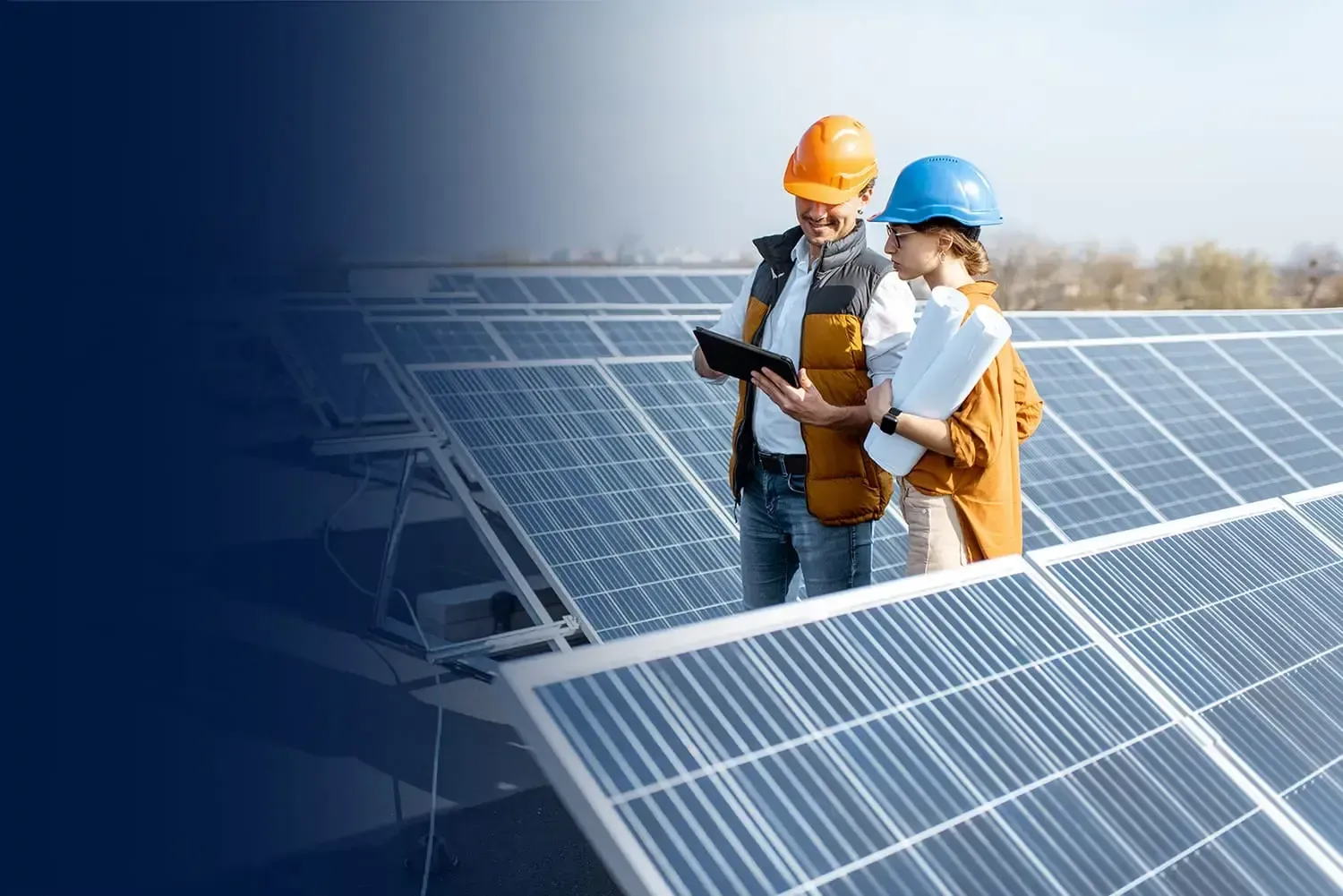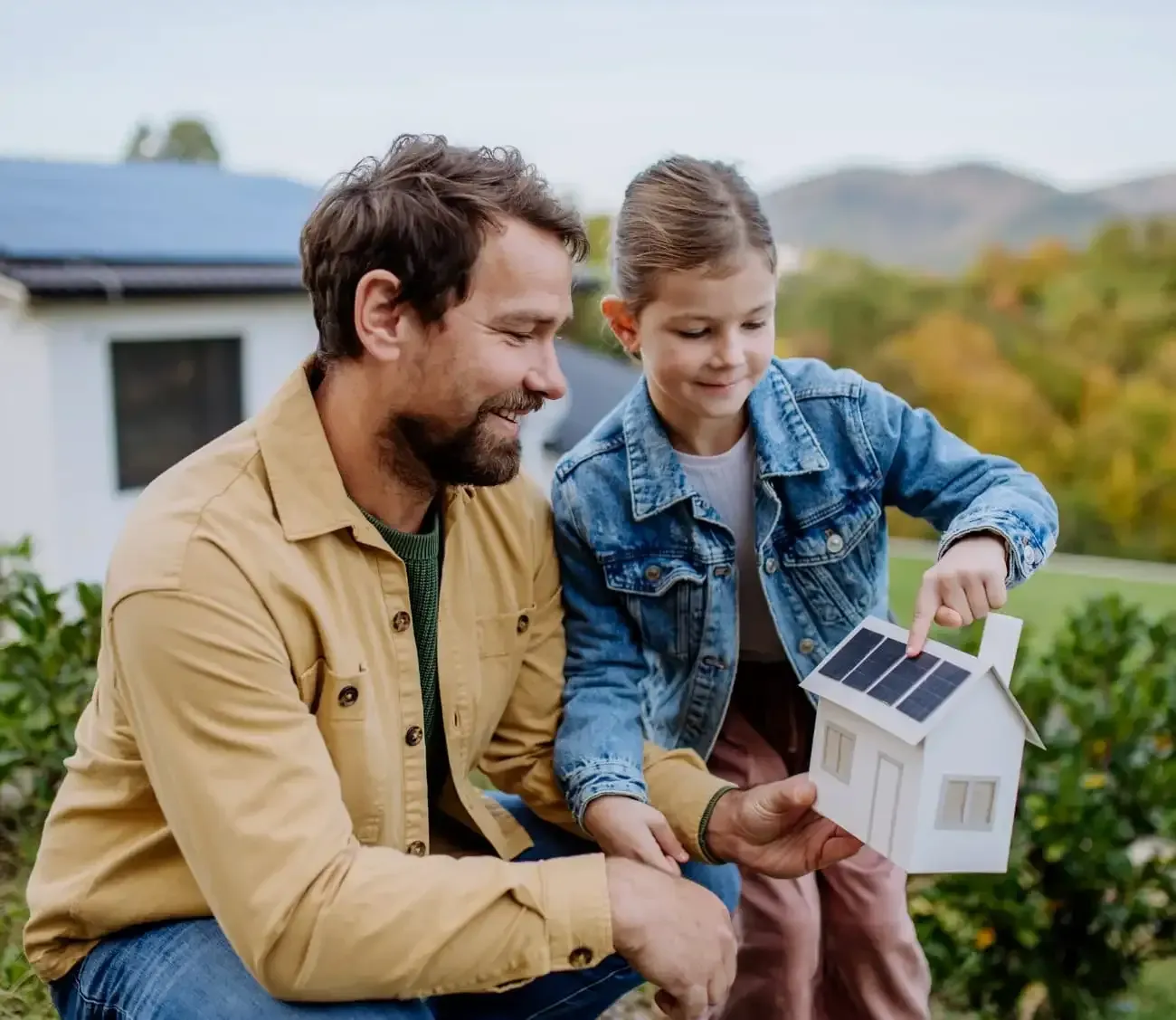Do solar panels give off radiation

Solar panels are becoming a popular choice for clean energy. They promise to reduce electricity bills and carbon footprints. But some people worry about radiation from solar panels.
Do solar panels give off radiation? This question often arises among potential users. Understanding the science behind solar panels can ease these concerns.
Solar panels work by converting sunlight into electricity. They use photovoltaic cells made from semiconductor materials. This process involves electromagnetic radiation, but is it harmful?
The radiation from solar panels is non-ionizing. It includes visible light and infrared, which are not harmful to health. Unlike ionizing radiation, it cannot remove electrons from atoms.
Solar energy systems are safe and efficient. They offer a renewable energy source without the risks associated with radiation. Modern solar panels have high efficiency rates, converting a significant portion of sunlight into electricity.
This article will explore how solar panels work and address radiation concerns. We will also discuss solar panel efficiency and its environmental impact. By the end, you’ll have a clear understanding of solar panels and their safety.
Understanding How Solar Panels Work
Solar panels are complex yet fascinating devices. They convert sunlight into electrical energy through a process called the photovoltaic effect. This transformation is both efficient and sustainable.
At the core of this technology are photovoltaic cells. These cells are primarily made of silicon, a semiconductor. When sunlight strikes these cells, electrons become excited, creating an electric current.
Here’s a simple breakdown of how solar panels work:
- Sunlight hits the solar panel: This initiates the energy conversion process.
- Photovoltaic cells generate electrons: These excited electrons are free to move.
- Electric current is produced: This current flows through conductors attached to the cells.
- Direct current (DC) is converted: It is transformed into alternating current (AC) for home use by an inverter.
- Electricity is used or stored: It powers devices or is stored in batteries for later use.
The effectiveness of solar panels lies in their design. Each cell contributes to the panel’s overall efficiency. By linking many cells together, a panel can convert a significant amount of sunlight.
These panels can be installed on rooftops, ground mounts, or integrated into building materials. Flexible installation options make solar panels attractive to homeowners and businesses alike. Moreover, they require minimal maintenance and have a long lifespan, typically 25-30 years.
Understanding how solar panels operate can clear up misconceptions. It also highlights how they fit into solar energy systems as clean, renewable energy sources. Thanks to continued advances in technology, these systems are becoming increasingly efficient and cost-effective.
What Is Radiation? Types and Sources
Radiation is energy that travels through space or matter in the form of waves or particles. It is a natural part of our environment and can come from many sources.
There are two main types of radiation: ionizing and non-ionizing. Understanding these types helps clarify how they relate to solar panels and their safety.
Types of Radiation:
- Ionizing Radiation: High-energy particles that can remove tightly bound electrons from atoms. Examples include X-rays and gamma rays.
- Non-Ionizing Radiation: Low-energy waves that do not have enough energy to ionize atoms. Examples include radio waves, microwaves, and visible light.
Ionizing radiation is generally the type that poses health risks. It has the energy needed to damage DNA, potentially leading to cancer. Non-ionizing radiation, however, lacks this capability and is considered safe.
Sources of radiation include both natural and man-made origins. Natural sources are cosmic rays from space and radiation from the ground. Man-made sources include medical devices and microwave ovens.
Solar panels mainly involve non-ionizing radiation, which is safe for human health. Understanding these distinctions assures that solar panels’ radiation is not a cause for concern. They fall within the non-ionizing category, mainly producing energy in the visible light and infrared spectrum.
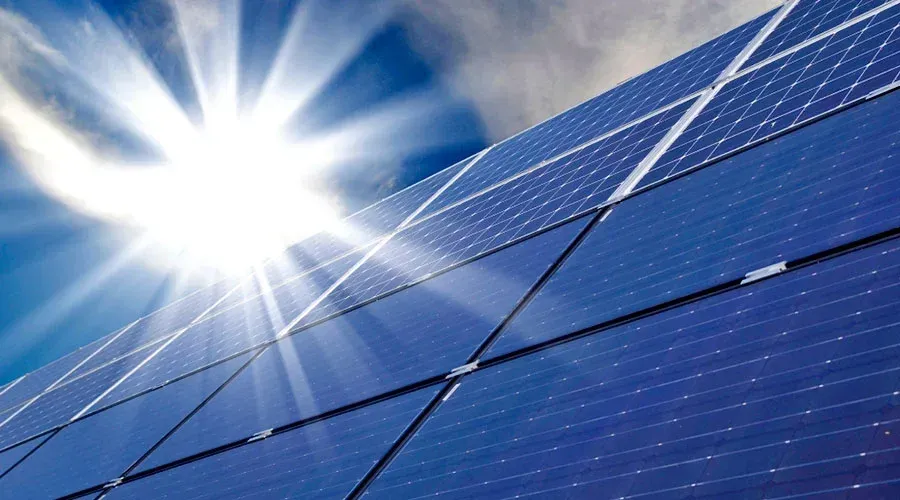
Do Solar Panels Emit Radiation?
Solar panels generate electricity by capturing sunlight. This process involves converting solar energy into usable power through photovoltaic cells, mainly composed of silicon.
When discussing radiation, concerns often arise. It’s important to understand the type of radiation involved in solar energy systems. Solar panels do not produce harmful ionizing radiation.
Do solar panels give off radiation? The answer is yes, but it’s the harmless, non-ionizing type.
Solar Panels and Radiation:
- Solar panels emit electromagnetic radiation in the form of visible light and infrared.
- This radiation is non-ionizing and safe.
- The electrical components may emit low levels of electromagnetic fields (EMF), similar to household appliances.
The non-ionizing radiation from solar panels is part of the natural electromagnetic spectrum. It does not pose health risks like ionizing radiation. Additionally, it is similar to the exposure we receive from other everyday sources.
Do solar panels give off radiation that could harm humans? No, the EMF levels are negligible and scientifically proven to be safe.
Electromagnetic fields around solar panels are negligible and not dangerous. They’re much weaker compared to other modern electrical devices, like cell phones or microwaves. Concerns about solar panels causing health issues like cancer are scientifically unfounded.
Overall, solar panels are a safe and eco-friendly option. They offer a sustainable way to harness renewable energy, with no significant radiation hazards. The health effects of solar panels’ radiation are minimal and not a cause for alarm.
Electromagnetic Fields (EMF) and Solar Panels
Electromagnetic fields (EMF) are a common feature of the modern world. They are present wherever electricity flows, including in solar energy systems. Let’s explore how EMF is related to solar panels.
Solar panels generate electricity, which creates EMF. However, the levels produced are incredibly low. These fields are similar in intensity to those emitted by many household appliances.
Do solar panels give off radiation in the form of EMF? Yes, but only non-ionizing and extremely low levels.
Key Points on EMF and Solar Panels:
- EMF from solar panels is non-ionizing and not harmful.
- The field strength decreases quickly with distance.
- EMF levels are lower than those from other common electrical devices.
The design and installation of solar panels play a crucial role in minimizing EMF exposure. By maintaining distance and following safety guidelines, any potential EMF risks are further reduced. Installers ensure that the system setup adheres to health and safety standards.
Research consistently shows that EMF from solar panels does not pose significant health risks. Organizations such as the World Health Organization (WHO) have not indicated concerns regarding EMF at the levels emitted by solar systems.
Understanding EMF in the context of solar panels helps alleviate health concerns. Overall, it confirms that solar installations are safe for residential and commercial use.
Are Solar Panels Safe for Your Health?
Health concerns related to solar panels often stem from misunderstandings. People worry that solar panels might emit harmful radiation. However, solar panels are safe and do not pose health risks.
However, do solar panels give off radiation that could hurt your health? Scientifically, no. They primarily emit non-ionizing radiation, the same kind found in visible light and TV remotes.
Reasons Why Solar Panels Are Safe:
- They emit non-ionizing radiation.
- Their radiation is weaker than everyday devices.
- They do not leak harmful substances.
Concerns about solar panels causing illnesses are unfounded. Studies have repeatedly shown no direct link between solar panel usage and adverse health effects.
The materials used in solar panels, such as silicon, are stable. They do not release toxic substances during operation. Moreover, proper installation ensures that all components function within safe limits.
The consensus among scientists and health professionals is clear. Solar panels, when installed correctly, are safe for both residential and commercial settings. Their benefits far outweigh any perceived risks, making them a viable and secure energy option for a sustainable future.
Solar Panel Efficiency and Energy Conversion
Solar panel efficiency is a measure of how well solar panels convert sunlight into electricity. It’s crucial for maximizing energy output in solar energy systems. Most modern solar panels have efficiency rates ranging between 15% and 22%.
Several factors affect solar panel efficiency. The quality of the photovoltaic cells is one. Another is the angle at which the panels are installed. Proper installation ensures optimal exposure to sunlight.
Factors Influencing Solar Panel Efficiency:
- Quality of photovoltaic cells.
- Angle and orientation.
- Weather conditions and climate.
Solar panels work best under direct sunlight. However, they can still function on cloudy days. The energy conversion process is less efficient in low-light conditions, but output is still significant.
Technological advances continue to improve efficiency levels. Researchers focus on new materials and designs. Such innovations promise greater efficiency and lower costs, making solar energy more accessible.
Efficiency not only affects energy production. It also impacts economic value and sustainability. Higher efficiency means greater return on investment. It also leads to more significant environmental benefits, as each panel produces more power with less waste. Therefore, focusing on solar panel efficiency is key in advancing the use of renewable energy sources.
Addressing Common Myths and Concerns
Many myths surround solar panels and their safety. Some believe they emit harmful radiation. Others worry they could cause health problems. However, these are misconceptions.
Solar panels do emit electromagnetic radiation, but it’s non-ionizing. This type of radiation is also found in household appliances. It does not pose a health risk.
Common Misconceptions About Solar Panels:
- Solar panels emit dangerous levels of radiation.
- Solar energy systems are noisy.
- Panels require constant maintenance.
- They are inefficient in cold climates.
Contrary to myths, solar panels work efficiently in diverse climates. Cold or cloudy weather does not halt energy production. Panels convert sunlight to electricity, even without direct sun.
Noise is another concern that’s unfounded. Solar panels operate silently. They don’t produce disruptive sounds, making them suitable for residential settings.
Maintenance needs are low with solar systems. Occasional cleaning and inspections ensure optimal performance. Advances in technology further simplify upkeep. Myths and concerns often deter solar adoption, but facts demonstrate solar energy as a safe, efficient, and reliable choice for renewable power.
Environmental Impact of Solar Energy Systems
Solar energy systems are often praised for their environmental benefits. They harness energy from the sun, a clean and renewable source. Unlike fossil fuels, solar panels do not emit greenhouse gases during operation.
The production of solar panels does have some environmental impact. Manufacturing involves mining raw materials and their use. However, this impact is minor compared to the pollution from burning fossil fuels.
Key Environmental Benefits of Solar Energy Systems:
- Reduction in carbon emissions.
- Decrease in reliance on non-renewable energy.
- Contribution to cleaner air and water.
Once installed, solar panels help reduce carbon footprints. They significantly cut greenhouse gas emissions over their lifespan. Each kilowatt-hour of solar power offsets energy from coal or natural gas.
Solar panels also preserve finite resources. They reduce the need for oil and coal, helping conserve these precious materials. Furthermore, solar energy systems operate without generating noise pollution, enhancing both their community and environmental appeal. As technology advances, the efficiency and sustainability of solar panels will continue to improve, further amplifying their positive environmental impact.
Maximizing Safety and Efficiency in Solar Installations
To ensure the safety of solar installations, follow best practices in design and maintenance. Well-planned installations minimize risks and maximize energy output. Proper site assessment and system design are vital steps in this process.
Regular maintenance is crucial for optimal performance. Clean panels allow for maximum sunlight absorption. Check for debris, dirt, or shading that could reduce efficiency.
Steps to Enhance Solar Installation Safety and Efficiency:
- Conduct a comprehensive site evaluation.
- Ensure professional installation by certified technicians.
- Perform routine inspections and cleaning.
- Monitor system performance regularly.
Choosing the right equipment also plays a key role. Using high-quality solar panels and components increases longevity and efficiency. Technology improvements have led to more durable and efficient products.
Educating homeowners about system care can prevent future issues. Provide information on safe operation and maintenance techniques. By taking these measures, the safety and efficiency of solar installations can greatly improve. This ensures that homeowners fully benefit from their investment in solar energy systems, contributing to a sustainable future.
Conclusion: Solar Panels, Radiation, and a Sustainable Future
Solar panels offer a path to a cleaner, more sustainable future. They harness sunlight without emitting harmful radiation. As society seeks eco-friendly energy solutions, solar power stands out as a safe and effective option.
The benefits of solar energy systems go beyond environmental gains. They provide cost savings, energy independence, and increased property value. Advances in technology continue to improve solar panel efficiency and affordability.
In embracing solar energy, individuals contribute to a global push for renewable resources. By alleviating reliance on fossil fuels, we can reduce our carbon footprint significantly. Solar panels, therefore, not only promise a safer environment but also empower communities to lead more sustainable lives. The transition to solar energy marks a vital step towards a healthier planet for future generations.


